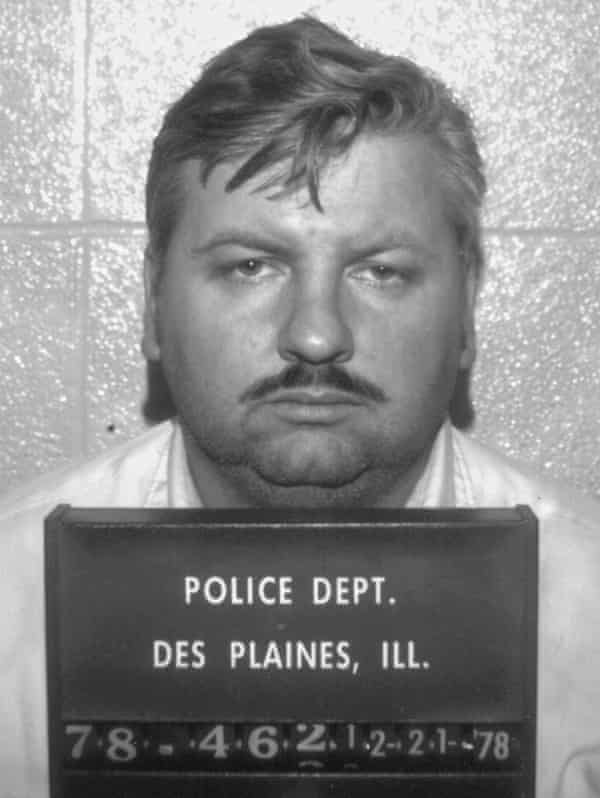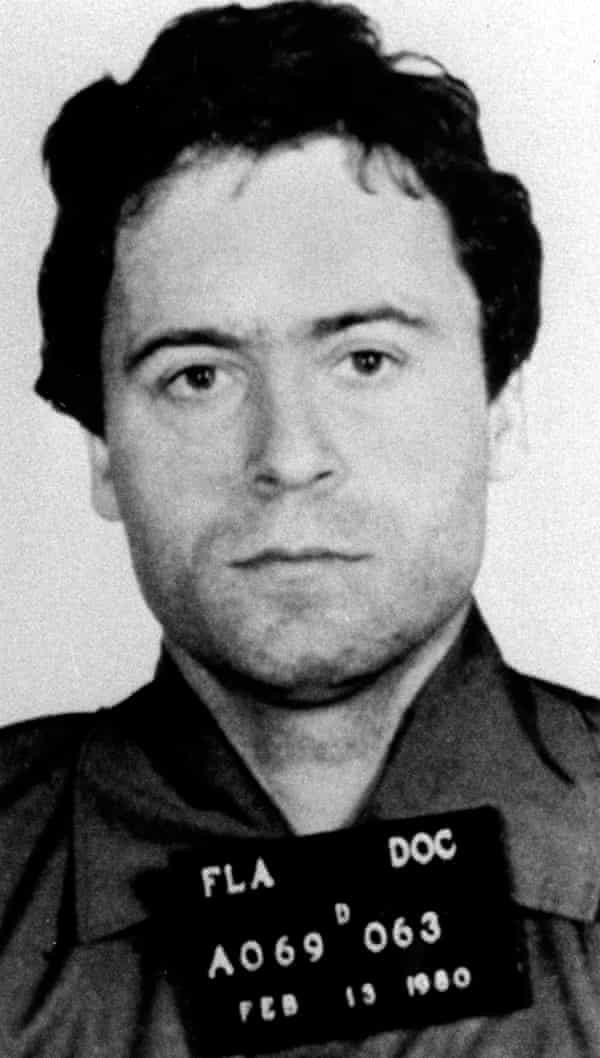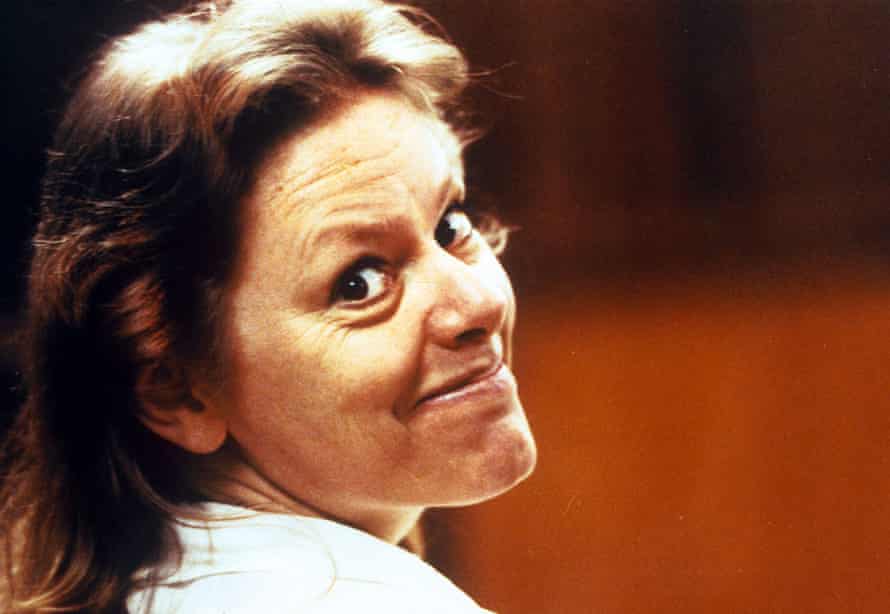How Do You Know if Someone Ypu Know Is a Serial Killer?
C anadian police have appear the discovery of more than homo remains on a property frequented by Bruce McArthur, an alleged serial killer believed to have murdered at least eight men in Toronto's gay community. A self-employed landscaper, McArthur allegedly buried the remains of some victims in bloom planters. Most of his victims, all gay men, were contempo immigrants of south Asian or Heart Eastern background. LGBT activists have accused the Toronto police force of failing to take seriously years of reports of disappearances in the Toronto gay village.
The Guardian spoke with Peter Vronsky, a historian and journalist based in Toronto and the author of several books studying the history and psychopathology of serial killers. His latest, Sons of Cain: A History of Serial Killers from the Stone Historic period to the Present, will be released 14 Baronial in the US and Canada and 16 August in the UK.
The book explores how our understandings of serial killers – chosen "monsters" before the advent of modern psychology – have changed over fourth dimension, and considers answers to a difficult question: what, exactly, "makes" a serial killer?

One of the oldest questions in criminology – and, for that affair, philosophy, law, theology – is whether criminals are born or made. Are serial killers a product of nature (genetics) or nurture (ecology factors)?
Nosotros don't quite know. Nada has been isolated.
My basic statement is that it is intrinsic to the human survival mechanism that we have this chapters to repeatedly impale. Killers are anachronisms whose cardinal instincts are not being moderated by the more intellectual parts of our brain.
Mayhap it's non that serial killers are made, simply that the majority of us are unmade, by expert parenting and socialization. What remains behind is these united nations-fully-socialized beings with this chapters to attack and impale. And often that chapters is grafted onto a sexual impulse – aggression sexualized at puberty.
Many serial killers are survivors of early babyhood trauma of some kind – concrete or sexual abuse, family unit dysfunction, emotionally afar or absent parents. Trauma is the single recurring theme in the biographies of most killers.
Are at that place whatsoever cases of serial killers who had well-adapted childhoods?
About serial killer biographies are self-reported, then you are relying on what they tell you. That existence said, there exercise seem to be some examples. Ted Bundy is a classic 1. No one has actually found any show of "trauma" in his childhood, in the dramatic, traditional sense. He did, however, grow up assertive that his female parent was his sister.

We had a killer here in Canada who was the commander of an air force base of operations. He was flying the equivalent of Air Forcefulness One – flight around the prime minister, visiting dignitaries – and so of a sudden in his 40s, a colonel, he commits 2 sexual homicides. He is a mystery. There is nix in his childhood to explain his behavior. There is too the strangeness of the late age at which he started.
I am currently studying a serial killer called Richard Cottingham. I talked to him in prison last month. He comes from a nuclear family … the father was there, the female parent was there, and in that location is no articulate history of trauma or corruption. It could be that there is something just he doesn't want to admit information technology. I really don't know.
But in that location is goose egg in his by that patently parallels the early lives of, say, Charles Manson or Henry Lee Lucas. When you read these killers' biographies it is no surprise they turned into what they did.
If killers are the products of childhood trauma, or underdeveloped brains, are they still "responsible" for their actions?
It'southward true that nearly all serial killers suffered childhood trauma. But here's the problem: if 100 kids grow up in an abusive foster home, and ane turns out to exist a series killer – what about the other 99? They grew up to be, well, maybe not all well-adapted citizens, but certainly non serial killers. What is the missing Ten gene?
My sense is responsibleness falls on the offender here. Serial killers choose to human action on their compulsions.
During the beginning large wave of celebrity serial killers in the 1960s and 1970s, some defense lawyers tried to argue in court that serial killers are not guilty by reason of insanity, considering an irresistible compulsion to kill is a form of temporary insanity. The legal definition of insanity is an inability to distinguish correct from wrong and an disability to understand the consequences of an action. But series killers are very aware of what they're doing. That's why they disguise themselves, hibernate show, exit the scene of the crime.
I can make the statement that series killers endure from psychopathy, that because they are psychopaths they take no sense of remorse or empathy and their decision-making process is faulty. Interestingly, however, not all series killers are psychopaths, co-ordinate to the Hare exam, a psychiatric diagnostic – or at least don't test equally such.
What exactly is psychopathy ?
The number 1 trait of a psychopath is a lack of empathy. Others are a trend to prevarication, a demand for thrills – psychopaths become bored very chop-chop – and narcissism. Just the lack of empathy is the biggest thing.
One common explanation is that psychopaths experience some kind of trauma in early childhood – perhaps as early on as their infant country – and as a issue suppress their emotional response. They never acquire the appropriate responses to trauma, and never develop other emotions, which is why they find information technology difficult to understand with others.
They grow up not knowing how to "experience", and learn instead how to manifest what they think are emotions or the correct appearances of emotion. They know the "mask" they should wear.
In the example of serial killers, that's why there are individuals who tin can heighten a family unit, be what most people would consider a good spouse and parent, and at the same time have secret second lives where they get out and kill strangers. They tin compartmentalize.
What practice you brand of Bruce McArthur, the alleged Toronto gay hamlet killer arrested before this year?
Bruce McArthur is interesting considering he was apprehended at such a tardily historic period. He is way across the statistical norm for when serial killers get-go kill – so either he has been killing for decades, and we have non yet identified his earlier victims, or he is some kind of new breed of series killer; an evolution in that phenomenon – someone who kills very late in their life when most serial killers have already begun "retiring" because their testosterone is declining.
If McArthur has been committing crimes since the 1970s or 1980s then this is going to be an extremely difficult investigation. Currently law enforcement are looking at his dating apps for prove and to link him to more possible victims. But they didn't have that kind of stuff then.
How common are same-sex serial killers?
There have been dozens of gay serial killers. Probably the virtually notorious were John Wayne Gacy and Jeffrey Dahmer. So that alone is not unusual.
At that place is obviously a lot less stigma about being gay today than there was in the 1960s or 1970s or even 1980s. Then, gay series killers were sometimes more effective because both they and their victims were living a hugger-mugger double life. They were already kind of acclimatized to cloak-and-dagger behavior – covering upwardly what they are.
Closeted people are still particularly susceptible to victimization past predators. If at that place are no witnesses or confidantes – family unit members and so on – able to link your disappearance to the killer, that gives the killer an advantage.
What about female serial killers?
Roughly 1 in every five to six series killers are female. There are significant differences in their psychopathology from male person killers.
Research on female serial killers is difficult because they are fewer and harder to catch. Female serial killers take less tendency to leave bodies behind. They are quiet killers; they take longer killing careers. They are much improve at it.

There is a less sadistic trend. They tend not to torture their victim and they are less interested in mutilation. But the motivation is similar – the need for control over their victim. It's non sex activity, it's control, though they may assert it through sexual acts.
Aileen Wuornos is the classic example – a female series killer in Florida. She worked as a prostitute and would kill her clients. A couple of documentaries take been made about her, and a characteristic motion picture (Monster, with Charlize Theron). Here was a serial killer motivated past pure rage.
The types of predation in which female serial killers engage are often an extension or perversion of gender roles. For case, the expectation that women are in nurturing roles, caring roles. Y'all have a category of female series killers with Munchausen syndrome past proxy – mothers killing children, nurses killing patients.
Is it true, as some have suggested, that series killing is now on the decline? Or is it simply less reported in the media?
Y'all know, it appears that nosotros're absorbing and acumen less serial killers, and when we do apprehend them they have a much smaller victim list, per killer. So yes, there seems to be a decline in American serial killing. Either there are less serial killers or we have gotten better at catching them earlier.
We accept had huge breakthroughs in forensic engineering science, especially Deoxyribonucleic acid science. Many of the serial killers who were arrested in the 1990s and 2000s were arrested for crimes committed earlier.
Do you know of whatever examples of serial killers who take expressed remorse?
Sort of. They may reach an age where they think "I should exist making amends". They may not feel information technology, but they think that they "ought" to. I know of an instance of a guy who in several decades had only given one interview. He was approached by the daughter of one of his victims, and he completely opened up to her.
It seems like the more research there is on serial killers, the more we realize how fiddling nosotros know.
We are floundering. We are floundering in masses of data simply very lilliputian cognition coming out of that information. Nosotros seem to know less about serial killers at present than we thought we did xx years ago. We are only at present realizing how little we know. That's partly considering the more series killer case studies nosotros amass, the less articulate the patterns become. Nosotros are starting to see all these anomalies.
As we as a lodge get more scientific and less philosophical it becomes more difficult for united states to explain this kind of abnormal beliefs. All that is left is the very human being definition: evil. But what is that? It is not a term that tin can exist tested or duplicated in the scientific sphere. Information technology was easier when nosotros just thought of them as monsters.
This transcript has been edited and condensed for clarity.
chamberlainhingall.blogspot.com
Source: https://www.theguardian.com/us-news/2018/aug/10/what-makes-a-serial-killer
0 Response to "How Do You Know if Someone Ypu Know Is a Serial Killer?"
Post a Comment